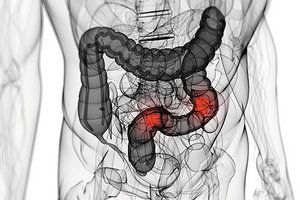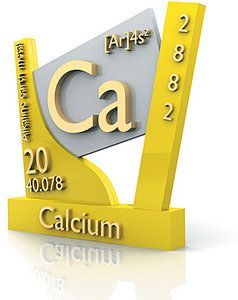Some doctors thrive in a personality-based clinic and have a loyal following no matter what services or equipment they offer, but for most chiropractic offices who are trying to grow and expand, new equipment purchases help us stay relevant and continue to service our client base in the best, most up-to-date manner possible. So, regarding equipment purchasing: should you lease, get a bank loan, or pay cash?
Calcium Helps Prevent Colorectal Cancer
Over the past 25 to 30 years, studies have suggested calcium may confer protection against colorectal cancer. Animal studies have shown this effect, and many epidemiological studies have shown a strong correlation between higher calcium intake and lower incidence of colorectal cancer.1-5
The Latest Study Findings
A meta-analysis published in 2014 in the International Journal of Cancer provides additional evidence that higher calcium intake, including calcium supplements, is associated with a significant reduction in risk of colorectal cancer. In this study, Boston-based scientists conducted a dose-response meta-analysis of 15 studies involving 12,305 cases of colorectal cancer and calcium intakes, ranging from 250-1,900 mg/day. They included studies that varied in duration from 3.3 to 16 years.
According to data analysis, both total and supplemental calcium were associated with a reduction in the risk of colorectal cancer. More specifically, the data showed that for every 300 mg increase in calcium from supplements, there was an associated 9 percent reduction in risk of colorectal cancer; and that for every 300 mg increase in total calcium, there was an associated risk reduction of 8 percent.
Thus, whether the individual relied on food or supplements as their source of calcium, both showed a similar reduction in risk of colorectal cancer, such that for every 300 mg of calcium consumed, there was a corresponding colorectal cancer risk reduction of 8-9 percent. Accordingly, ingesting 1,200 mg of calcium per day from food and/or supplements (typical for someone striving to maintain optimal bone density) would confer a 32-36 percent reduction in colorectal cancer risk.

This has important clinical application, as the 2003-2006 U.S. National Health and Nutrition Examination Survey showed that the median total calcium intake of adults older than age 50 was only about 650 mg/day for non-calcium-supplement users and 1,000 mg/day for calcium-supplement users. The National Health and Nutrition Examination Survey is a nationally representative cross-section survey in the United States.
The 2014 meta-analysis suggests the benefit of calcium intake in preventing colorectal cancer would be expected to increase with continued calcium intake beyond 1,000 mg/day, and not only for non-supplement users; supplement users may further reduce their risk of colorectal cancer through additional calcium intake (e.g. additional supplementation). The researchers conclude that both dietary and supplementary calcium intake may continue to decrease colorectal cancer risk beyond 1,000 mg/day.6
Calcium Supplements and Colon Cancer Recurrence
These observations are further supported by the 2004 Calcium Polyp Prevention Study, a randomized, double-blind, placebo-controlled chemoprevention trial among patients with a recent colorectal adenoma. Nine hundred and thirty patients were randomly assigned to receive calcium carbonate (1,200 mg/day) or placebo. Follow-up colonoscopies were conducted approximately one and four years after the qualifying examination.
Results showed that calcium supplementation (1,200 mg per day) exerted pronounced anticancer effects on advanced colorectal lesions compared to the placebo group.7 Other studies, including randomized clinical trials, have also shown that supplementation with calcium is associated with a decreased risk of colorectal adenoma recurrence and colorectal cancer.8-9
How Does Calcium Reduce the Risk of Developing Colon Cancer?
Calcium has been shown to exhibit protection against colorectal cancer through various biological mechanisms. Animal studies suggest calcium binds to secondary bile acids and fatty acids in the colonic lumen, thereby diminishing the potential proliferative stimulus of these compounds on the colonic mucosa. Calcium may also reduce the risk of colorectal cancer by direct effects on cells that line the colon (epithelial cells) by slowing the rate of cell division, promoting cellular differentiation and inducing apoptosis (programmed cell death) of cells with genetic damage.
All of these mechanisms have been shown to be important in cancer prevention. Animal studies and some, although not all, clinical trials have shown that increased calcium and dairy food intake can decrease colonic epithelial cell proliferation.8

Practical Applications
From a practitioner standpoint, it is reassuring to see that the same level of calcium intake shown to prevent and manage osteoporosis is consistent with the range of calcium intake associated with reduced risk of colorectal cancer (1,000-1,500 mg per day). Although a number of epidemiological studies have shown that dairy products are linked to decreased risk of colon cancer, researchers on the meta-analysis team of the 2014 study suggest calcium supplements and non-dairy sources of calcium may be better choices to increase calcium intake, including non-dairy, calcium-fortified foods and beverages.
Their concerns are that many dairy products are high in fat, hormones and calories; and contain casein protein, which has been linked to increased cancer risk in some studies.
As for an increased risk for cardiovascular disease from higher calcium intakes, this has largely been dismissed by recent research investigations. That said, in my view it is important to ensure the patient is also receiving adequate magnesium as calcium intake increases; and that blood levels of vitamin D remain at or above 30 ng/ml (75 nmol/L) throughout the course of the entire year.
Note also that a recent Medscape review highlighted the fact that vitamin D blood levels above 30 ng/ml are highly correlated with a decreased risk of colon cancer, breast cancer, leukemia and melanoma, as well as diabetes.10
In order to provide patients with personalized recommendations about calcium and vitamin D, I suggest you ask patients to complete a seven-day diet history to determine their present calcium intake, along with undergoing a simple blood test for 25-hydroxycholecalciferol (vitamin D). Once you have this data, you can advise them, if necessary, about how to increase their calcium intake and vitamin D blood levels into the optimal range.
References
- Lipkin M. Preclinical and early human studies of calcium and colon cancer prevention. Ann N Y Acad Sci, 1999;889:120–7.
- Vinas-Salas J, Biendicho-Palau P, Pinol-Felis C, Miguelsanz-Garcia S, Perez-Holanda S. Calcium inhibits colon carcinogenesis in an experimental model in the rat. Eur J Cancer, 1998;34:1941–5.
- Pence BC, Buddingh F. Inhibition of dietary fat-promoted colon carcinogenesis in rats by supplemental calcium or vitamin D3. Carcinogenesis, 1988;9:187–90.
- Pence BC. Role of calcium in colon cancer prevention: experimental and clinical studies. Mutat Res, 1993;290:87–95.
- Pence BC, Dunn DM, Zhao C, Patel V, Hunter S, Landers M. Protective effects of calcium from nonfat dried milk against colon carcinogenesis in rats. Nutr Cancer, 1996;25:35–45.
- Keum N, Aune D, Greenwood DC, Ju W, Giovannucci EL. Calcium intake and colorectal cancer risk: dose-response meta-analysis of prospective observational studies. Int J Cancer, 2014;135(8):1940-1948.
- Wallace K, Baron JA, Cole BF, Sandler RS, Karagas MR. Effect of calcium supplementation on the risk of large bowel polyps. J Natl Cancer Inst, 2004;96(12):921-925.
- Larsson SC, Bergkvist L, Rutegard J, Giovannucci E, Wolk A. Calcium and dairy food intakes are inversely associated with colorectal cancer risk in the Cohort of Swedish Men. Am J Clin Nutr, 2006;83(3):667-673.
- Shaukat A, Scouras N, Schunemann HJ. Role of supplemental calcium in the recurrence of colorectal adenomas: a meta-analysis of randomized controlled trials. Am J Gastroenterol, 2005;100:390-4.
- "Vitamin D and Mortality Risk: Should Clinical Practice Change?" Medscape Family Medicine, Aug. 13, 2014.



